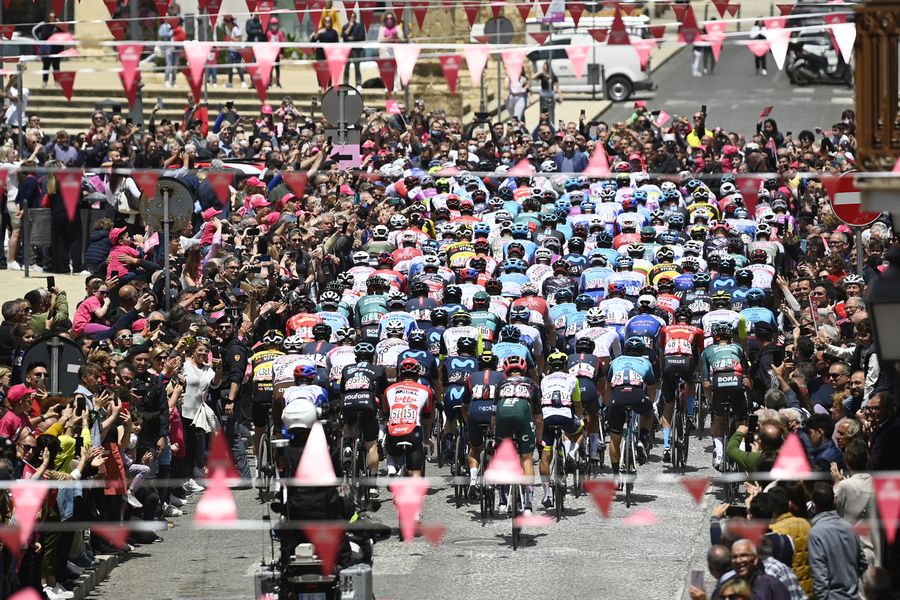Nutrition for Cycling: What You Need for a Healthy, Perfect Ride

Whether competing in ironman, cycling for fun, fitness, or adventure, you must eat the right foods as what you eat dictates the amount of fun or suffering you have while in the saddle. The food also determines how you will recover to ride another day.
If you eat crappy food, you will have a hard time recovering, and vice versa.
Although, there is no one size fits all, there are certain foods you should have to have a great time cycling. Which are these foods? Here they are:
Carbohydrates
Often stored as glycogen in the liver and muscles, carbohydrates are the preferred source of fuel when cycling. Everyone has enough glycogen reserves to power about 90 minutes of exercise, but if you are cycling longer than this, you should top up your carbs to avoid the feeling of fatigue.
Experts recommend you eat between six and 12 grams of carbohydrates for every kilogram of body weight, depending on the length of your cycling.
On the day you are cycling, take 20-30 grams of carbohydrates at least 15 minutes before starting your race. To ensure that your glycogen reserves don’t get too low, eat some carbohydrates during the race. The amount you consume depends on the length of the race.
To help you out, here are some expert recommendations:
- 1-2 hours: 30 grams of carbohydrates per hour
- 2-3 hours: Take 60 grams of carbohydrates per hour
- 3 or more hours: Consume 90 grams of carbohydrates per hour
Proteins
You need energy from carbohydrates and proteins to help with recovery and muscle repair. The amount of proteins you need varies depending on your physiology and the duration and intensity of your ride.
To stay on the safe side, consume 0.4 grams of protein for every kilogram of bodyweight.
If looking for faster recovery, there are plenty of bars and shakes you can use.
The catch with these shakes is to ensure that you buy them from reputable brands such as Tailwind Nutrition. This way, you are sure that they aren’t only packed with empty sugars that add more harm than good.
Besides the proteins helping with recovery, they also play a vital role in supporting glycogen uptake into the muscles, so taking proteins as you are cycling is a good move, especially if you are cycling at lower, active recovery intensities.
Regardless of whether you are taking animal, plant, or protein shakes, ensure that the proteins you take have a combination of all the 20 essential amino acids.
Water
As you exercise, your body produces a lot of metabolic heat that is lost via sweating. If you lose more than 3% of your body mass in sweat, you stand having a significant impact on your performance.
Before cycling, aim to drink at least 500 ml of fluid at least four hours before the race. Drink more water if you find your urine dark in color the next time you urinate.
If you are the type that sweats a lot during cycling, you might find it hard to replace all the fluids you have lost through sweat. In such an instance, consider hyperhydrating before exercising.
You should note that while hyperhydrating might be highly beneficial to you, you will be stopping to urinate more frequently, which can be an inconvenience, especially if you are in a race.
Take care not to consume too much water than you need, as you put yourself at the risk of suffering from hyponatremia. This is where the sodium in the blood gets diluted, and you show signs such as confusion, fainting, and weakness. Seizures and even death are also possible in extreme cases.
If you aren’t sure about the right amount of water to take, there are plenty of hydration calculators such as this you can use to determine the optimal amounts to consume.
Fats
You need to ingest fats to support the absorption of essential fat-soluble vitamins such as A, K, and E, which come in handy in aiding energy supply, recovery, and immune system.
Fats also help lower blood pressure and cholesterol levels and reduce heart disease risk.
As you are taking the fats, note that there are good and bad fats. Of course, you should take good fats from foods such as nuts, avocados, and oily fish that won’t harm you.
Vitamins and minerals
While you can get most of the vitamins and minerals from eating a balanced diet, sometimes you need specific vitamins more than others as a cyclist. The ones that you should focus on include:
Vitamin C: Vitamin C keeps you in the saddle by supporting healthy immunity and helping fight cardiovascular diseases. The best sources of this vitamin are fruits and vegetables, but you can always find them in supplements.
Vitamin D: Vitamin D is vital in building stronger muscles, increasing your metabolism and bones, and shortening recovery times. You can get 80% of your vitamin D from the sun, but during the winter months, you can top up the deficiencies using supplements.
Magnesium: Magnesium promotes better sleep and regulates blood pressure and sugar. It also supports nerve function, not to mention helping the body make better use of carbs and fat as fuel.
You will find plenty of magnesium in nuts, avocados, bananas, and seeds.
Parting shot
There is no question about it—you need to take the proper nutrition to fuel your body appropriately. While you need essential foods, such as carbohydrates, proteins, vitamins, minerals, and water, the amount you take depends on your individual needs. This means that you shouldn’t be too stuck on the recommended amounts.
The right way to go about it is to experiment with different food combinations and see what works for you. For example, one day, you can take 10 grams of carbohydrates, then the next, take 15 grams.
Try out different combinations and see the combination that gives you the best output. If you aren’t sure how you should go about your nutrition, get the input of an expert.
Foto: Lapresse



